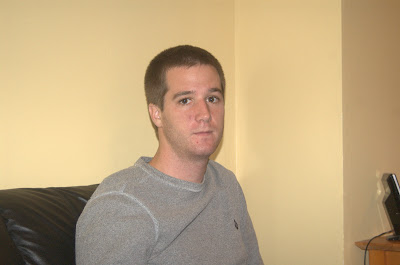Wednesday, September 22, 2010
Sunday, September 19, 2010
A Shot That Captured the Bigger Meaning in Sports

The photograph accompanying this article is one of the best ever taken on a soccer field. The game is over, there is a winner and a loser. Indeed, this image is a symbol of the World Cup, the ultimate prize in soccer, passing from one of these men to the other.
But can you see joy and despair? Or do you see in their touch, their smiles, their eyes something that means so much more than who won and who lost the game? The picture is 40 years old, and there is every chance it will be around for another 40.
It was taken during the 1970 World Cup in Mexico, where England, the 1966 champion, lost the trophy. Brazil won the match, 1-0, in Guadalajara and went on to win the tournament, fielding perhaps the finest soccer team ever.
Above and beyond that, this photograph captured the respect that two great players had for each another. As they exchanged jerseys, touches and looks, the sportsmanship between them is all in the image.
No gloating, no fist-pumping from Pelé.
No despair, no defeatism from Bobby Moore.
Moore, in many eyes the most accomplished English defender ever, died of cancer in 1993. He regarded this photograph as his favorite in a career during which he captained his country 90 times, including the day England won the World Cup.
Pelé, a three-time winner of the World Cup and the most complete player in history, still considers this picture a defining moment in his life.
“Bobby Moore was my friend as well as the greatest defender I ever played against,” Pelé said after Moore’s death. “The world has lost one of its greatest football players and an honorable gentleman.”
Last week, the world lost the third man for whom this photograph meant so much.
John Varley, the photographer, died in his home county, Yorkshire, in northern England. Varley, who was 76, was a news photographer with a sensitive eye for moments beyond the news.
His paper, The Daily Mirror of London, sent him to wars and to natural disasters. And he delivered. In the days when there were no digital cameras, no automatic focus, he had what other photographers described as an instinct for being where things might develop, and a patience to wait for the crucial moment
The Moore-Pelé embrace was such a moment. Look again at the image. Cast your mind back to 1970, when foreign players in the English league — or any league — were rare.
There was at the time a suspicion of black players, ludicrous when one considers that Pelé had been a world star since 1958. It centered on the belief that nonwhites lacked stamina and physical toughness.
This photograph helped break down that prejudice. The blond, blue-eyed Moore and the most wonderful player of his time, Pelé, each stripped to the waist, simply transcended that nonsense.
To take the picture, Varley had taken a sabbatical from his day job.
His contract included a break every four years, and Varley used that to go to each World Cup from 1966 to 1982.
I knew him in the latter years of those assignments, a traveling companion of quiet, droll humor, and, like a lot of photographers of his time, a self-effacing man.
There was no rich living to be made 40 years ago for a specialist sports photographer. Varley’s work shone through the image of a policeman, waist deep in water, carrying a baby to safety during flooding in an English valley.
He took memorable shots of children suffering in the Biafra war — a civil war in Nigeria — as well as a symbolic photograph of a church cross tangled up in rusty barbed wire in the tough Ardoyne district in Belfast during the Troubles of Northern Ireland.
And, again in sports, he looked behind the scenes after a British boxing bout when he snapped a harrowing image of the defeated heavyweight Richard Dunn, his head on the floor of the bathroom shower.
On hearing of Varley’s death, I contacted an American photographer in California. “I have that picture of Pelé and Moore,” he said. “Always admired it, never knew who took it.”
By ROB HUGHES
Published: September 14, 2010
Saturday, September 18, 2010
Sunday, September 12, 2010
Saturday, September 11, 2010
Friday, September 3, 2010
“We want people to know that Florida is a place for winners."

“If we are going to compete in something, we want to win at it — whether it is in pediatrics or women’s gymnastics,” said J. Bernard Machen, the University of Florida president. “It is important to our supporters, both financial and among our community. It is part of our culture. We want people to know that Florida is a place for winners.”








